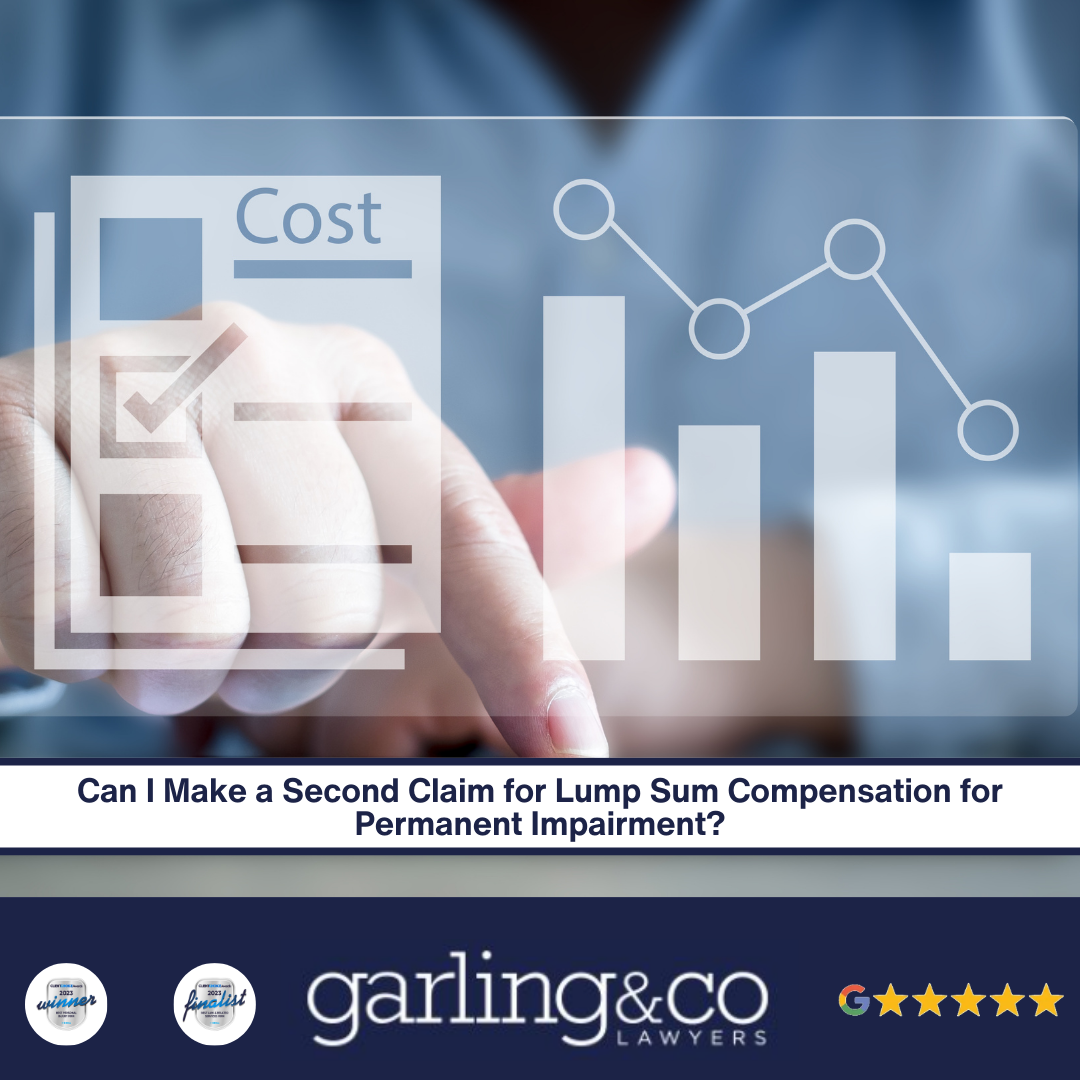
For example, weekly payments of compensation are made for a maximum period of five years unless you have an assessment of whole person impairment of 21% or greater.
Medical expenses are payable for a maximum of either two or five years (after the last day on which you receive weekly payments of compensation) unless you have a whole person impairment of 21% or greater.
You are unable to make a claim for Work Injury Damages (a negligence claim against your employer) unless your whole person impairment is 15% or greater.
It is important not to make any claim for whole person impairment unless you are satisfied that your injury is unlikely to deteriorate further, or you are satisfied that you will exceed 21% whole person impairment.
If you exceed 21% whole person impairment this entitles you to ongoing payments of weekly compensation until retirement age (subject to the insurer conducting work capacity assessments every 2 years) and payment of medical expenses for life. It also allows you to investigate whether you may have a claim for Work Injury Damages, that is, a negligence claim against your employer.
At Garling and Co we are starting to receive many enquiries from people who have seen a Lawyer and have had their whole person impairment assessed without considering that they only have one chance to make a claim for lump sum compensation.
If you have obtained an assessment of whole person impairment of 14% or less, this will prevent you from making a claim for Work Injury Damages and you can only receive weekly payments for a maximum of 5 years and medical expenses for a maximum of 5 years thereafter.
It is therefore a very important decision to make as to when to make a claim for lump sum compensation and how this decision will affect you rights to ongoing weekly compensation and medical expenses and whether or not you can make a claim for Work Injury Damages.
You should ensure that this decision is not made lightly and that your Lawyer discusses with you the ramifications of what will happen to your future entitlements to workers compensation should you not obtain an assessment of 15% or 21% whole person impairment.
Having said that, it may be possible to make a further claim for lump sum compensation for whole person impairment in certain circumstances.
Section 350(3) of the 1998 Act allows for a Certificate of Determination to be set aside or rescinded by the Workers Compensation Commission.
The Workers Compensation Commission considered in the matter of Samuel v Sebel that a Certificate of Determination may be set aside in consideration of the following:
- The Section gives the Commission a wide discretion to reconsider its previous decisions.
- While the discretion is a wide one it must be exercised fairly and with due regard to relevant considerations including the reasons for any delay in bring the application for reconsideration.
- One of the factors to be weighed in deciding whether to exercise the discretion is the public interest that litigation must not proceed indefinitely.
- Reconsideration may be allowed if there is new evidence that could not with reasonable diligence have been obtained at the first decision and is later obtained and that new evidence, if it had been put before an doctor on the first occasion, would have been likely to lead to a different result.
- A mistake or oversight by a legal adviser will not give rise to a ground for reconsideration.
- The Commission has a duty to do justice between the parties in accordance with the substantial merits of the case.
In taking all those matters into consideration the Commission may decide to rescind or set aside a previous Certificate of Determination assessing the level of whole person impairment if it is in the interest of justice to do so.
This may include cases where there has been a significant deterioration of a worker’s condition that was not foreseen previously or where a worker has sustained a subsequent consequential injury and would be entitled to additional lump sum compensation.
It is certainly a Section which will be looked at over the next few years to determine whether injured workers can return for a second assessment of whole person impairment under Section 350 of the Act.
If you need assistance with your claim, please do not hesitate to contact us as follows;
- Complete our FREE case assessment form HERE
- Email us at info@garlingandco.com.au
- Give us a call on (02) 8329 9500 and talk to our specialised lawyers
Insurance companies and their employees won’t tell you everything you need to know to get all the compensation you’re entitled to. You need to fight back by arming yourself with all the knowledge you can. Read this 6-point guide which will help you understand your rights and entitlements under Workers’ Compensation legislation when making a successful claim for work injury compensation or damages.












